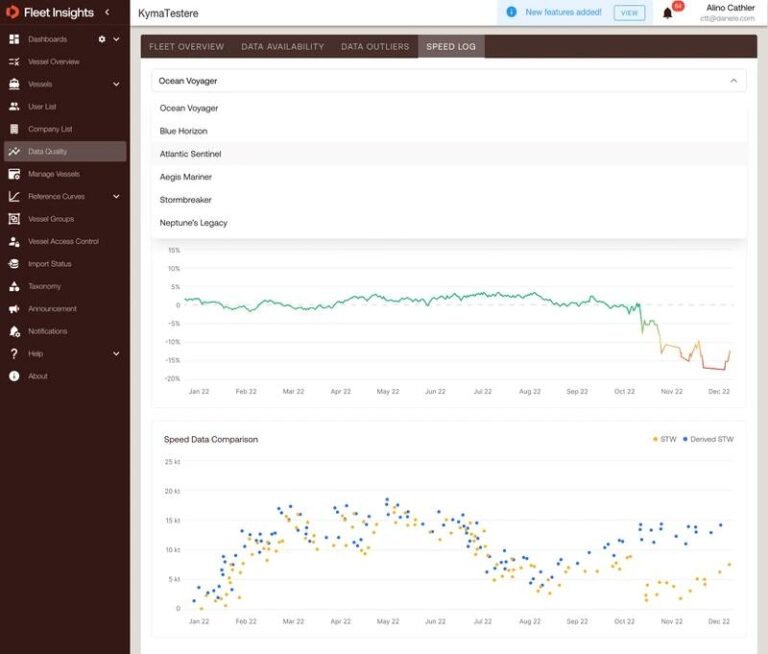Danelec Launches Data Quality Module to Enhance Maritime Data Solutions
Danelec, a leader in maritime data solutions, has introduced a new Data Quality Module as part of its innovative Fleet Insights solution. This new feature is designed to empower shipowners to accelerate emission reduction efforts and unlock significant operational savings by ensuring the accuracy and actionability of the High-Frequency Data (HFD) they receive through Fleet Insights.
With the maritime industry increasingly focusing on digitalization and decarbonization, the importance of reliable technical insights cannot be overstated. However, the persistent issue of poor data quality poses a significant risk. Danelec’s Data Quality Module directly addresses this challenge by providing the necessary tools to convert raw sensor data into a dependable foundation for emissions reporting, performance optimization, and regulatory compliance.
While installing advanced sensors across fleets represents a substantial investment, the real test lies in effectively leveraging the data generated by these sensors. Studies have shown that up to 30% of critical sensors, such as Speed Through Water sensors, may produce inaccurate data. Without automated oversight, operational teams often spend countless hours manually cleansing data, leading to delays and inconsistencies in decision-making processes.
The impact of poor-quality data extends to various aspects of maritime operations, from fuel consumption calculations to compliance with evolving environmental regulations. With regulations like FuelEU set to take effect in January 2025, the need for precise data is becoming increasingly crucial. As regulatory frameworks become stricter and more reliant on data, the margin for error is rapidly diminishing.
When combined with other features of Fleet Insights, the Data Quality Module ensures that ship performance analytics are based on a solid foundation of accurate, high-resolution data. By enhancing data quality and reliability, shipowners can drive operational efficiency, reduce emissions, and navigate the evolving regulatory landscape with confidence.

